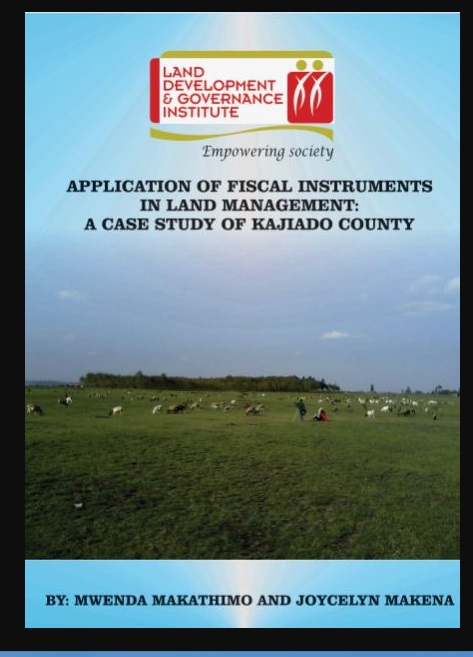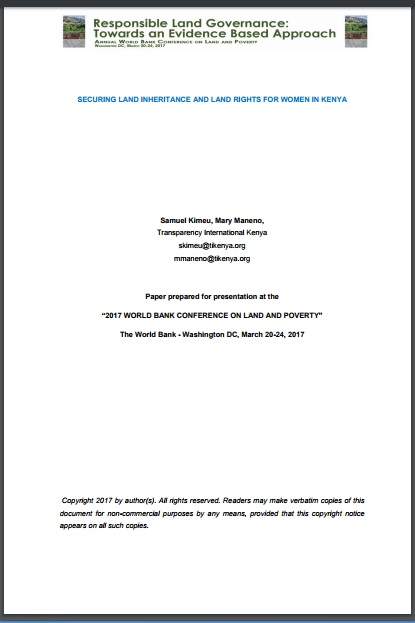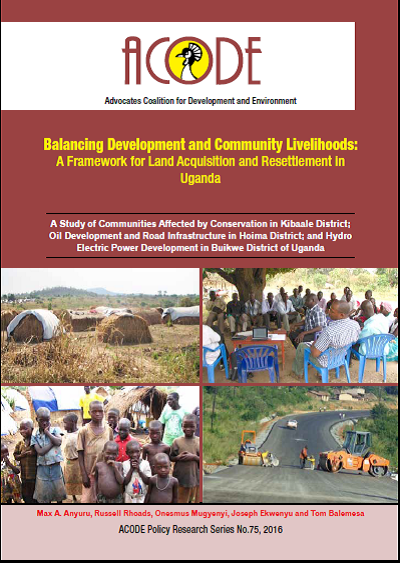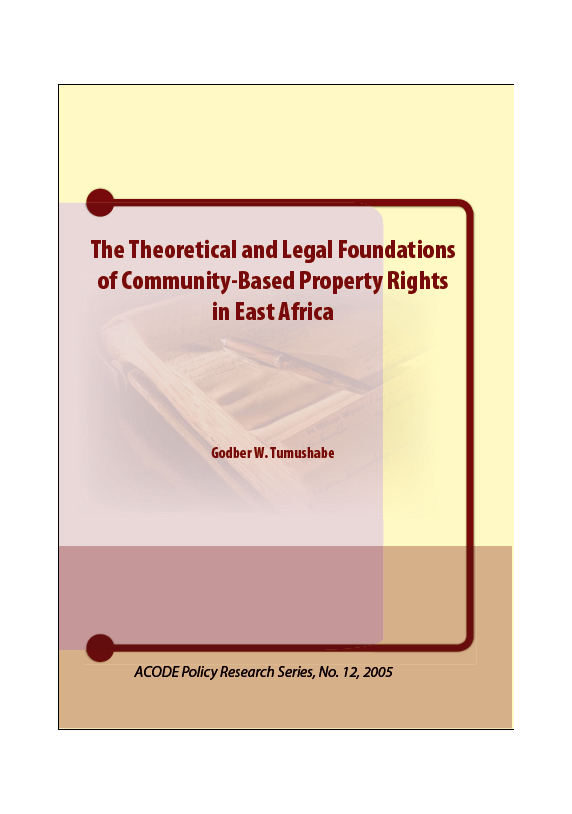Understanding forest tenure: What rights and for whom?
The study conducted by FAO and partners in South and Southeast Asia was based on an analysis of forest tenure according to two variables: the type of ownership, and the level of control of and access to resources. It aimed to take into account the complex combination of forest ownership − whether legally or customarily defined − and arrangements for the management and use of forest resources. Forest tenure determines who can use what resources, for how long and under what conditions.
Application of Fiscal Instruments in Land Management
Fiscal instruments are tools that governments use to manage revenue and expenditure and therefore influence the growth (or stability) of the various sectors of the economy. Government revenue is derived primarily through taxation. In Kenya, land taxation has contributed less than 1% of government revenue for the past three years. The Sessional Paper No.
Securing land inheritance and land rights for women in Kenya
Women face many problems with regard to land inheritance and land rights in Kenya. Individual and community land ownership do not favour women. The reason for this is that ownership of land is patrilineal, which means that fathers share land amongst sons, while excluding daughters. This practice is traditionally widespread and partly accepted although it goes against the interest of women and is prohibited by the constitution.
Different approaches to the social vision of communal land management: the case of Galicia (Spain)
Communal forests, or Montes Veciñais en Man Común (MVMC), are a specific form of communal land tenure and a singular legal category in Galicia. The growing demographic decline in rural areas and, particularly, in inner areas of Galicia has led to a decrease in the economic interest of forest resources. The complexity of the different management modes or levels of organization of forest communities cannot be explained through a homogeneous interpretation.
Land Administration in Zambia After 1991
The Land tenure system in Zambia is divided in the following administrative segments: colonial period
1880-1964; immediate post independence 1964-1975, post independence period of one party political
Balancing Development and Community Livelihoods: A Framework for Land Acquisition and Resettlement in Uganda
Land acquisition for development projects by government, private investors and land speculators is a critical source of tensions and conflicts in many parts of Uganda. Following the discovery of commercially viable oil reserves in 2006, Uganda turned attention to extractives and oil development as a matter of national priority. Evidence of this assertion can be found in the recent 2016-17 national budget allocations, where the portion for oil development is substantial.
Take anything, leave our land
The Karamoja region in Northeastern Uganda, covering an area of 27,200 square kilometers, is inhabited by around 1.2 million people who live in seven districts; Moroto, Nakapiripirit, Napak, Amudat, Abim, Kotido and Kaabong. Its residents are mainly Ngakarimojong speaking peoples, but the area is also home to the Ethur, Labwor, Pokot, and indigenous minorities such as the Tepes and the Ik.
The Theoretical and Legal Foundations of Community-Based Property Rights in East Africa
Indigenous, mobile, and local communities all over the world have for millennia played a critical role in conserving the earth’s patrimony. They have protected forests, wetlands, rangelands, watersheds, hunting grounds, rivers and streams and other water catchment systems that are to day the basis of prosperity for all nations. “Community” husbandry of these resources has been done for a wide range of reasons ranging from economic, cultural, spiritual, aesthetic to many others.
Understanding changing land access issues for the rural poor in Uganda
The ways in which people obtain land in Uganda are changing fast. Land that used to be secured through inheritance, gifts or proof of long-term occupancy is now more commonly changing hands in the market. Those with wealth and powerful connections are frequently able to override local rules and gain access to land at the expense of poorer individuals. Government-backed agribusiness investors receive large areas of land with benefits for some local farmers who are able to participate in the schemes, while other smallholders see their land access and livelihoods degraded.
Power and Vulnerability Land Dispute Resolution
Unfolding analysis reveals two types of land disputes prevalent in postwar northern Uganda: cases that involve a legitimate cause of action and those that do not.1 Since mediation and alternative forms of dispute resolution rely on parties’ willingness to negotiate in good faith, cases featuring ‘bad faith’ and land grabbing—where powerful parties intentionally exploit another person’s vulnerability in order to illegally2 claim land—pose a serious challenge for local land dispute mediators. Such mediators must wrestle with whether and how to remain neutral in the face of injustice.
Communal Property Associations Amendment Act
Written submissions on the Communal Property Associations Amendment Act to the Portfolio Committee Rural Development and Land Reform









